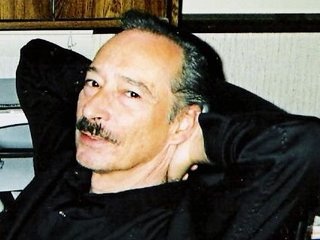I learned a lot of things as I wrote the novel, Buck and Tangee: Things That Happened. One of the things was that not every word nor every scene works. Some things may be good, but they just don't make the cut...they don't fit. That's whats happening with the following five hundred words. The book took a different turn, and Mayanne became Tangee and this brief interchange never happened. I hate to waste things so here it is.
Life as a StoryDaylight Savings Time is good. Sitting on MayAnne’s front porch at eight o’clock at night, there was still a low clear sun to squint against. The slightest breeze pushed bugs and dust and dandelion fluffs past in lazy eddies.
The used-to-be-yellow lawn chair creaked as I turned to her and said, “Want to go to a show or something? Get a pizza?”
It didn’t much matter what we did, if anything at all. The plan was that later on we’d get all naked and sweaty, but for now most anything would be okay.
Her daughter, Angel, looked over from her book. “Couldn’t we, like, do something real? What’s the point? Movies and pizza. There’s no point in that.”
“Movies are fun and pizza is food. How much more real do you need?”
“It’s like we’re wasting everything,” she said. “Time and life and everything.”
Angel is sixteen; baggy jeans and a too tight tee shirt. She was bright and she knew it and she was stuck here and she knew that, too.
“Everything has to contribute to the plot,” she said, leaning against the porch railing. “That’s how stories go. That’s how novels go. It makes sense. It’s the one thing that Mr. Eiler said last year in English that did make sense. When you write a book or something, everything has to contribute to the plot. She wagged her straight brown hair off of her face and waited for rebuttal.
“This here is life,” said MayAnne. “This ain’t no story. And I don’t want to sit in the movies. It’s a nice night and there’s some of our funny shows on TV. Pizza’s good-just remember to get your mushrooms and stuff on your half. I don’t want to have to go picking mushrooms off my side.”
MayAnne has beautiful little feet. They were in tennis shoes at the moment, but later she’d scuff them off in front of the TV and I’d rub her toes.
“This might be life,” Angel was saying, “but it wouldn’t make much of a story. It wouldn’t get a D in class. Nobody’d ever buy this book.”
“Well that’s just fine with me, Missy, because this life ain’t for selling.” MayAnne was getting a little defensive. “It’s just for living. That’s what people do. They live. It’s the books that ain’t real. Besides, what are you doing that’s so important? You ain’t got no plot either. Unless you’re doing something with Bradley that you shouldn’t be doing. That kind of plot will get you in trouble. Next thing you know, you’re going to be pregnant and I’ll be stuck with the baby and you’ll wind up on welfare or something.”
“Ma, we haven’t even done anything and you got me on welfare already.”
Of course Angel and Bradley were doing something and their plot had advanced a whole lot further than she was saying. But I figured saying something wouldn’t be all that helpful, even if it would make our story a little more interesting for a while.

